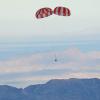Search Results
Showing results 21 to 40 of 55

How Small Can You Cut?
Source Institutions
In this lesson, learners cut paper into very small pieces to explore the small size of quarks, the smallest thing we know of on Earth.

How Big Were the Dinosaurs?
Source Institutions
In this activity (located on page 4 of PDF), learners gain insight into the actual size of dinosaurs and practice making estimations and measurements.
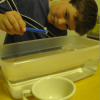
Shrinking Cups
Source Institutions
This is a quick activity (on page 2 of the PDF under Gecko Feet Activity) about the forces of gravity and surface tension and how their behavior is influenced by size.
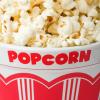
Buckets of Popcorn
Source Institutions
In this activity, learners develop an understanding of cylinders and volume as they compare two sizes of popcorn buckets.
Paper Bag Skits: Using Size and Measurement
Source Institutions
Put the math of measurement, numbers, and everyday life into improvisational skits.
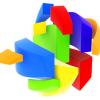
Crazy Shapes
Source Institutions
In this activity, learners cut a shape into two equal sized pieces and use their knowledge of geometry and space to prove that the two parts are equal.
Piece It Together: Puzzle Hunt
Source Institutions
In this activity, learners follow clues to find five puzzle pieces, then assemble them. This activity works well with a whole group, individuals, or families.

The Gator Pie Game
Source Institutions
In this activity, learners explore fractions as they help gators share pies.
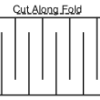
Great Openings: Slots, 35 Sense, and Hole In One
Source Institutions
These three short activities challenge groups to fit objects through paper and index cards: "Slots" presents the challenge for one learner to figure out which objects fit through a hole cut by another
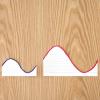
Soap-Film Interference Model: Get on our wavelength!
Source Institutions
By making models of light waves with paper, learners can understand why different colors appear in bubbles.
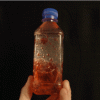
Why do Raindrops Sometimes Land Gently and Sometimes Land with a Splat?
Source Institutions
In this activity, learners examine raindrop bottles (prepared ahead of time) to observe in slow motion the behavior of falling droplets and explore concepts such as drag and terminal velocity.
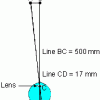
Measuring Your Blind Spot
Source Institutions
In this activity, learners calculate the width (horizontal diameter) of the blind spot on their retina. Learners make a blind spot tester using a piece of notebook paper.
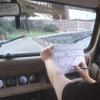
Highway Seismograph
Source Institutions
This is an activity that models the operation of a seismograph, a tool used to measure the size of earthquakes.
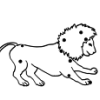
Modeling the Night Sky
Source Institutions
In this two-part activity, learners explore the Earth and Sun's positions in relation to the constellations of the ecliptic with a small model.

What is a Nanometer?
Source Institutions
This lesson focuses on how to measure at the nanoscale and provides learners with an understanding how small a nanometer really is.
Wheel of Fitness
Source Institutions
In this fun activity for any size group, early elementary learners complete physical challenges while playing a game. Learners add new challenges to the "wheel of fitness" that they want to try.
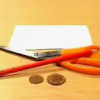
Shrinking Coin
Source Institutions
In this demonstration, learners attempt to get a large coin through a small hole, the size of a smaller coin.
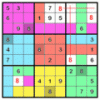
Color Sudoku
Source Institutions
The popular sudoku puzzles use numbers, but the game could played with any set of 9 different objects!

Size It Up
Source Institutions
In this artistic activity, learners blow up a smaller picture into a larger one, by using a grid.

